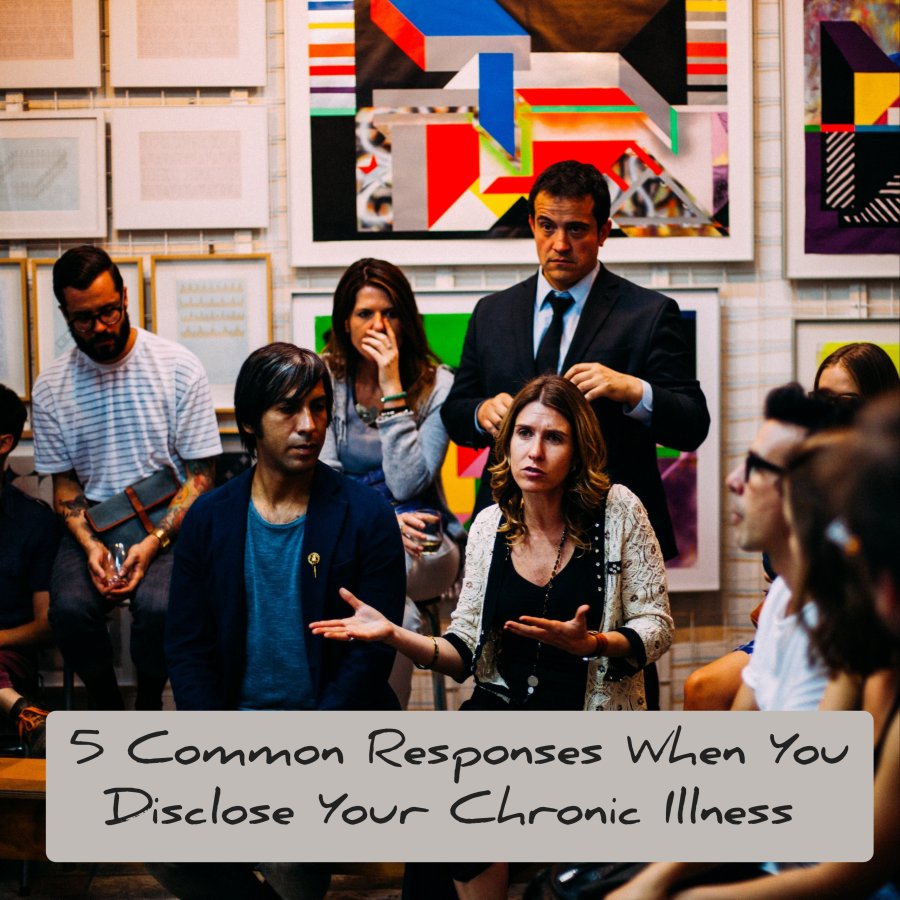Living with chronic illness comes with its own set of challenges, and one of them is dealing with people’s reactions when you tell them about your medical condition. Here are five common responses and suggestions on how to handle each situation.
1. “At least it’s not cancer.” And if it is cancer, at least it isn’t this particular type of cancer, or you would have died already. It’s disheartening when others downplay your experience by comparing it to different conditions or other people’s situations.
Remember, their comments are not about you, but about their own discomfort with the topic of any chronic illness. For your own mental and physical health, it’s best to ignore these remarks.
2. “I know the cure.” They had a cousin, who knew a guy, whose wife did this regimen and now she’s cured! So you should definitely do that so you can get cured too. (Even though there is no cure to your illness.)
Many well-meaning people may suggest unproven remedies or miracle cures, despite lacking any medical knowledge about your condition. Politely acknowledging their advice while asserting that you have a team of medical professionals guiding your treatment can help maintain boundaries and prevent further unwanted recommendations.
3. “Well, you don’t look sick.” This response stems from their preconceived expectation of how chronic illness “should” look, and if you don’t fit inside their stereotypes, it causes people to doubt your experience. Educating as many people about not all illnesses are visible may foster understanding.
But if you have already calmly explained the concept of invisible illness and how it impacts your daily life and they still do not believe you, it is best to accept that not everyone will comprehend your personal trials.
4. “Tell me more about…” Some individuals genuinely want to learn about your condition. While it might be intimidating at first, try to embrace these opportunities to educate others about your chronic illness. Increasing awareness can combat misconceptions and help create a more compassionate environment. If you find reliable resources, apps, websites, even influencers that provide accurate information about your specific chronic illness, so you can help educate others, Who knows, they may even become advocates to raise awareness in turn!
5. “Your struggles are powerful.” Over-sympathizers might shower you with well intentioned prayers and sentiments, but their constant emphasis on your epic struggles can be overwhelming. They may have the best intentions, yet we do not need to be reminded that we struggle every day. We live it; we know. Remember that you are more than your illness, and it’s okay to politely remind them that you appreciate their support while still maintaining personal boundaries.
Have you encountered any of these responses when disclosing your chronic illness to someone new in your life? What was your response?

